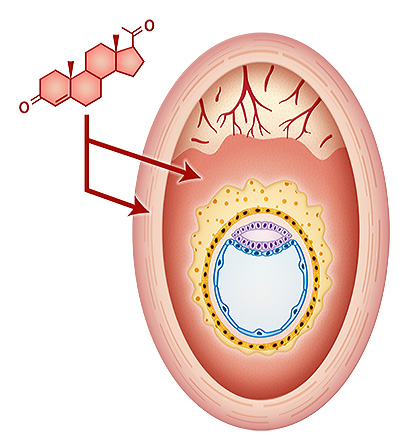Reproductive & Developmental Biology Laboratory

Francesco J. Demayo, Ph.D.
[email protected]
Research Summary
Francesco DeMayo, Ph.D., is Chief of the Reproductive and Developmental Biology Laboratory, and leads the Pregnancy and Female Reproduction Group. He also holds a secondary appointment in NIEHS Immunity, Inflammation, and Disease Laboratory.
The Pregnancy and Female Reproduction Group goal is to define the molecular mechanisms regulating normal reproductive tract and pulmonary function. The accomplishment of this will allow a better understanding how these tissues are impacted by the environment. We will be better able to determine how the endocrine disruptors impact the ability of the reproductive tract to initiate and maintain pregnancy. Also we will determine how these factors impact the development of reproductive diseases such as endometriosis and endometrial cancer. We will also be able to determine how environmental insults impact the progression and development of pulmonary diseases such as lung cancer.
Using in vivo and in vitro approaches my laboratory investigates the molecular mechanisms governing reproductive and respiratory tract biology. These two organ systems are under constant exposure to the environment and represent systems that are vital for life and the continuation of our species. To identify the proteins that regulate the female reproductive tract during these processes, group members use genetically engineered mice, human cells, and transcription factor analysis. These tools allow them to examine factors that allow proper embryo implantation, adequate uterine support for embryo development, and on-time delivery.
Another area of study that is critical to embryonic maturation is the timing of lung development investigates what regulates lung physiology and homeostasis. The lungs are constantly exposed to environmental insult. These insults can damage the lung and result in diseases such as Emphysema, Chronic Obstructive Pulmonary Disease, Asthma and Lung Cancer. The generation of genetically engineered mouse models allows us to dissect the processes which controls normal lung development and which pathways are altered in pulmonary disease.

Major areas of research:
- Understanding uterine biology, specifically how several transcription factors regulate the window of uterine receptivity.
- Determining what regulates the ability of the uterine endometrium to support the developing fetus.
- Examining the role of transcription factors in controlling the muscle layer of the uterus, the myometrium to expand during pregnancy and contract during birth.
- Investigating mouse models to determine the pathways that are altered during the development of lung cancer.
Current projects:
- Investigating how Sox17, Foxo1, and the progesterone receptor regulate the uterus.
- Establishing how Wnk1 is involved in decidualization, or the process of stromal differentiation.
- Defining the roles of the progesterone receptor and COUP-TFII, and their involvement in uterine expansion and birth.
- Exploring the involvement of environmental factors in the development of squamous cell carcinoma.
DeMayo received a Ph.D. in physiology from Michigan State University and completed his postdoctoral training at Baylor College of Medicine. He reached the rank of professor at Baylor, eventually holding the Cullen Duncan McAshan Endowed Chair, before joining NIEHS in 2015.


